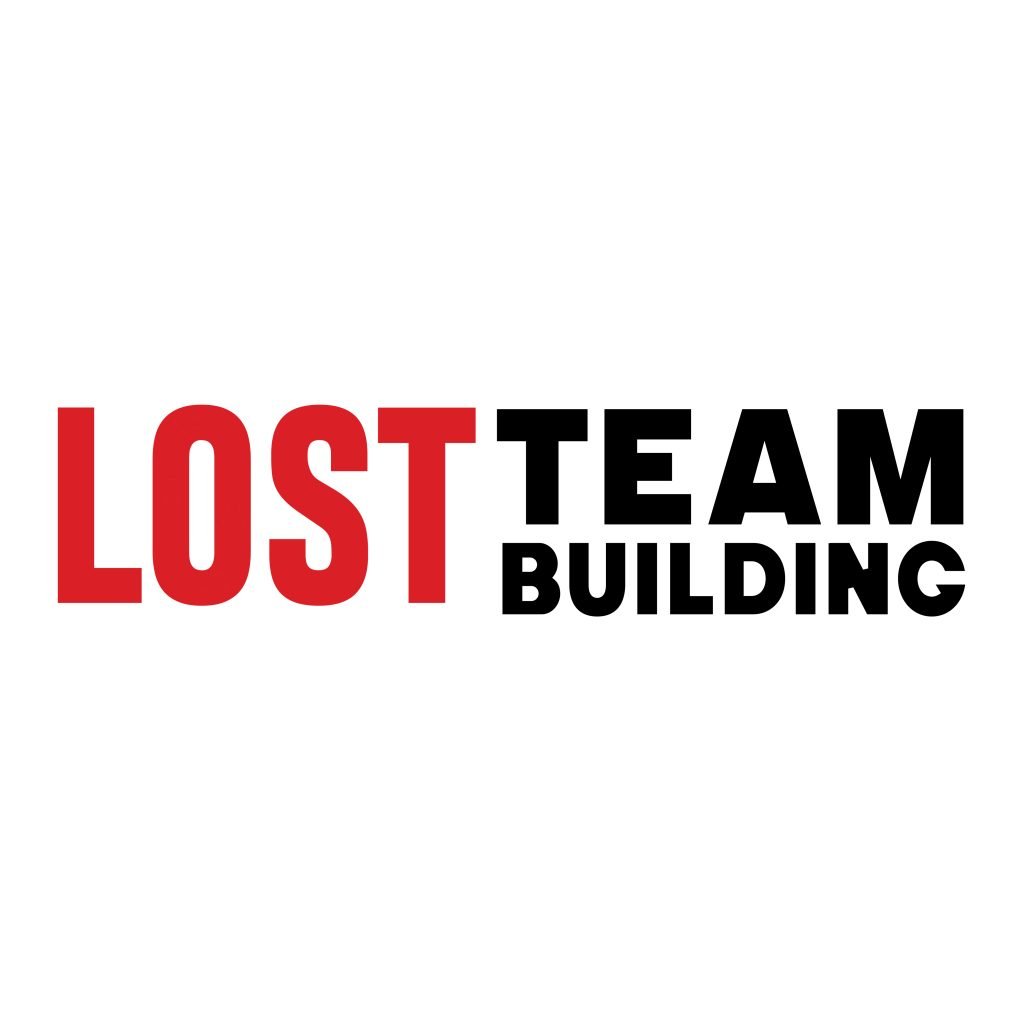
There is quite a lot of benefit about team building including effective communication, planning skills, team players motivation, and collaboration. Fun activities that help people see each other in a different light allow them to connect in a different setting. There LOST designed 6 different team building activities to suit all you need!
LOST Team battle is a competitive yet light hearted escape room challenge that pitches multiple teams against each other in order to see who will get the most points! Not only will they have to strategise to escape the room, but they have to plan ahead and outsmart the other teams as well. Let’s see which team will stand up on top!
Want something with a bit more substance and takeaway? Our corporate training package includes a professional facilitator that will help your team improve their synergy and critical thinking. Your team won’t have to be stuck inside a lecture hall or classroom, they can learn while in action!
Got a lot of people? Our Team Arena package can help you out by hosting a large scale event that can cater over 100 people. This game mode isn’t constrained to an escape room, but an arena where you and your team can compete in puzzle solving, mini-games and challenges. Lets which team can win the most and be crown the champion of the arena!
Want an event that focuses on completing a mutual goal? Our Team Challenge might just fulfil your request! In addition to playing our escape rooms, the team will have to lookout for a series of side mission in order to fill up a “Task Gauge” that will be accumulated throughout the whole event. Can your team breakthrough the threshold and achieve victory?
Want your team to step out of their comfort zone? LOST Escape Run is perfect for you! This mode is a great blend of treasure hunting and escape rooms. Players must complete a series of tasks around town and then come back to our centre to do the final challenge, an Escape Room!
Got a team from all over the world? Why not do some team building with them online! Our Virtual escape experience helps teams with members that aren’t all based in the same location, but want to enjoy and escape room together. If you want to add a little spice for a bigger group you can even choose to do a Virtual Team Battle! Distance doesn’t exist with the Virtual Escape!
Since 2013, LOST has been cooperating with plenty of brands and institutions to hold team building events regionally. LOST escape game emphasises elements of Intelligence, Interaction, Imagination and Investigation for different size of team and companies to cultivate their bonding and unlock their capability.
Why LOST is one of the best options for team building, corporate training, corporate events, and gamification:
LOST stands out as a top choice for team building, corporate training, corporate events, and gamification because of our unique and engaging escape games, customisation options, focus on teamwork and collaboration, skill development, gamified learning approach, and global experience. These factors contribute to making LOST an excellent partner for companies looking to enhance their teams’ dynamics, foster learning, and create memorable corporate experiences.
Want a competitive and light-hearted event to lift everyone’s spirits? Try team battles!
Want some training to learn how to improve your team’s communication and problem-solving skills? Try corporate training!
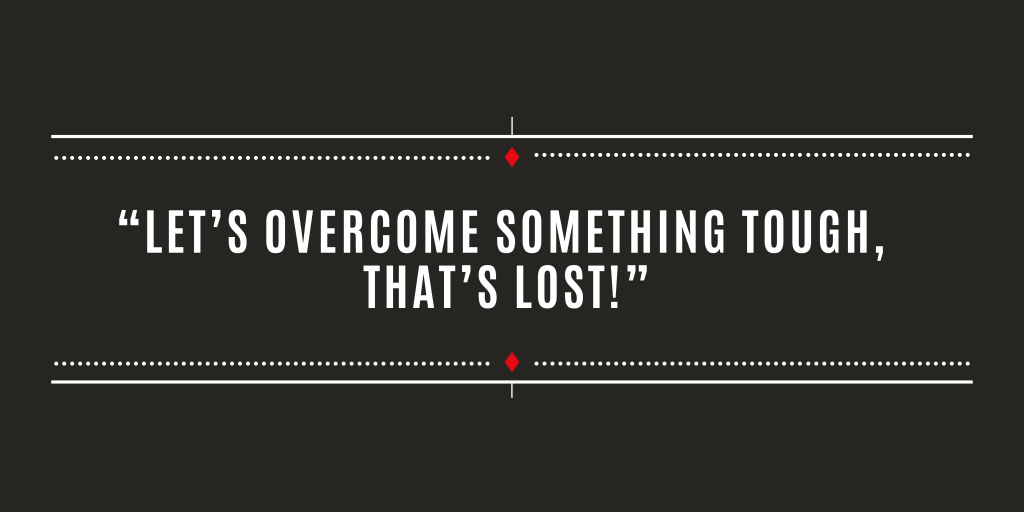
In the modern 21st-century work environment, repetitive tasks are gradually being automated, emphasizing the growing importance of communication, collaboration, and creativity. Companies recognize the need to unlock their employees’ human potential, and Team Building has emerged as a valuable training tool. Extensive research has affirmed the benefits of Team Building activities in promoting efficient teamwork.
As with any service, there’s a considerable difference in the quality of Team Building experiences. Ineffective Team Building not only squanders time and resources but also leaves employees feeling like it’s just another obligatory task. To address this, we focus on three essential elements when crafting our Team Building activities:
Team Building aims to foster collaboration, and you might wonder why there’s a need to learn this skill during such activities. After all, don’t employees collaborate daily in the workplace?
The answer lies in the workplace’s ability to develop unique work cultures, perceptions of colleagues, and biases over time. Some may assume that specific colleagues are more talkative, while others are more diligent workers. These perceptions may align with reality in some cases, but not always. For instance, colleagues considered “diligent workers” may possess excellent communication skills but express themselves less frequently due to introverted personalities. Team Building activities create an environment where colleagues engage in various tasks. These tasks reflect their usual working patterns.
Facilitators play a vital role here, as they observe team dynamics as outsiders and identify strengths and weaknesses often overlooked by team members. With the guidance of these facilitators, participants can reevaluate their collaboration styles. If a facilitator notices a colleague with excellent communication skills but an introverted nature, they can encourage that individual to express their thoughts more freely. This process helps build confidence and highlights the strengths of quieter team members. In essence, Team Building aims to provide a work-like environment that encourages colleagues to experiment and learn from failures. This safe space unveils the dynamics of the original team relationships and identifies opportunities for improvement.
One common reason why employees may not fully embrace Team Building activities is the emphasis on building unity without addressing underlying communication issues. In these scenarios, facilitators often encourage participants to shout motivating slogans, creating a sense of unity. However, relying solely on slogans won’t unite the team. Team Building activities provide an opportunity to expose these issues and encourage healthy debates.
For instance, a cooking training session might involve participants introducing their dishes in groups. A particularly eloquent participant could create a compelling presentation that resonates with the entire group. However, upon closer examination, it becomes apparent that many other team members had limited involvement in designing the dish and the presentation. This situation highlights a significant challenge in team communication. Despite the apparent lack of cohesion within the team, participants may feel pressured to present a united front, meeting their higher-ups’ expectations. This can lead to a backlog of communication issues.
Effective Team Building activities should not merely provide temporary joy. They should induce a fundamental shift in participants’ perspectives. In some cases, corporate trainers may repeat clichés during debriefing sessions, emphasizing the importance of customer communication or the idea that smiling more improves relationships. However, without a paradigm shift within a few hours, participants are likely to revert to their old ways once they return to their regular work environment.
Valuable training equips participants with new concepts, enabling them to see old things from a more accurate perspective. For example, some colleagues may believe that pointing out their colleagues’ mistakes is detrimental to maintaining good team relationships. Team Building can introduce the concept of Radical Candor, emphasizing that constructive criticism, motivated by the desire to help colleagues improve, is a key aspect of productive communication.
Changing one’s beliefs is akin to planting a seed, and Team Building that prioritizes joy over lasting impact is like a fading flower. The former will gradually grow and continuously improve behavior, while the latter will wither and revert to its original state once the initial excitement fades.
In the realm of corporate training, it’s not uncommon to hear instructors use well-worn phrases during debriefing sessions, such as emphasizing the importance of customer communication or the belief that a smile can enhance relationships. However, the mentor-student relationship in such sessions is typically short-lived. The challenge lies in whether these fleeting interactions can truly reshape an individual’s existing perspective or paradigm within the span of a few hours. While participants may enjoy the activities and experience temporary improvements in their relationships, the real test comes when they return to their regular work environment, where old habits often resurface.
In stark contrast, effective training should empower students to grasp new concepts and view familiar situations from a more precise and enlightening perspective. Take, for example, the common belief among some colleagues that maintaining strong team relationships requires refraining from pointing out each other’s mistakes. An insightful Team Building experience can introduce the concept of Radical Candor, emphasizing that silence about errors is akin to depleting trust. Instead, offering constructive criticism with the motivation to assist others in their growth represents the essence of productive communication. Such insights can lead to a transformation in the fundamental understanding of communication for participants.
Transforming beliefs is akin to planting a seed, and a well-structured Team Building program that prioritizes enduring impact over fleeting joy is like a growing, resilient plant. The former steadily matures and continuously refines behavior, while the latter gradually withers away, returning to its original state after the initial enthusiasm fades.
The selection of Team Building activities should be approached with discernment, as it represents a wise investment in your team’s development. As entrepreneurship expert Zig Ziglar aptly stated, “You don’t build a business; you build people, and people build the business.” When harnessed effectively, Team Building consultants can be a valuable asset in fostering a stronger, more harmonious team. Nevertheless, two crucial considerations merit attention:
Team Building constitutes an investment, and it’s essential to approach it judiciously. Random or haphazard choices can lead to ineffective outcomes. Some companies in Hong Kong, for instance, have been known to charge substantial fees for seemingly generic advice, such as the importance of “listening to fellow team members.”
Based on our extensive observations of Team Building engagements, it’s important to recognize that Team Building is not a one-size-fits-all solution. For genuine team development, a company’s policies and values must prioritize people and embrace a willingness to adapt. Without this foundational commitment to change, even the most extensive Team Building efforts may struggle to cultivate a truly cohesive and productive team.
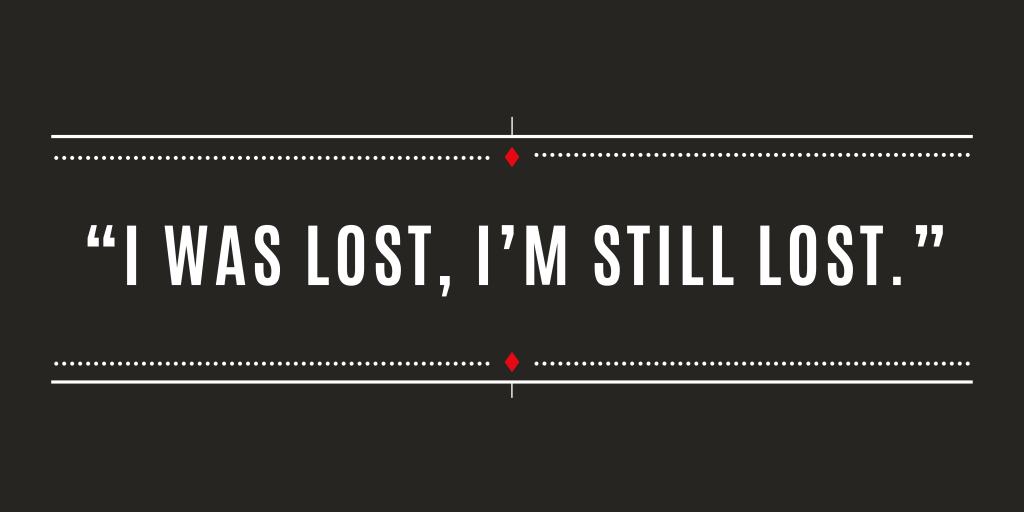
In today’s dynamic and ever-evolving work environment, team building has taken center stage as a vital component of organizational success. Understanding why team building is important is crucial for fostering a collaborative and productive workforce that can tackle challenges effectively and achieve overarching goals.
One of the primary reasons why team building is crucial lies in its ability to promote cohesion and collaboration within a group of individuals. In any workplace, employees come from diverse backgrounds and possess different skill sets. Team building activities help bridge these gaps by encouraging participants to work together, share ideas, and leverage their unique strengths. As teams learn to communicate and collaborate effectively, it results in improved productivity and efficiency, ultimately contributing to an organization’s success.
Effective communication is the lifeblood of any successful team. Team building activities provide an opportunity for participants to develop and enhance their communication skills. Whether it’s through solving puzzles, engaging in group discussions, or tackling challenges as a team, these activities require clear and open lines of communication. By honing their communication abilities, team members can better understand each other, reduce misunderstandings, and foster an environment where ideas are freely shared and valued.
Team building plays a crucial role in building trust and reliability among team members. Through shared experiences and overcoming challenges together, employees develop a sense of trust and camaraderie. When team members trust each other, they are more likely to rely on their colleagues, which leads to improved workflow and more effective problem-solving. Trust is the foundation upon which strong teams are built, and team building activities are instrumental in nurturing this trust.
The importance of team building also extends to promoting creativity and innovation within an organization. In a collaborative and supportive team environment, employees feel empowered to think outside the box, propose new ideas, and take calculated risks. Team building activities that involve creative problem-solving or brainstorming sessions provide a platform for team members to tap into their creative potential. This not only benefits the organization’s ability to adapt to changing circumstances but also inspires a culture of innovation.
Employee morale and engagement are vital factors for workplace satisfaction and performance. Team building activities are known for their ability to boost employee morale and engagement by offering a break from routine tasks and creating an enjoyable atmosphere. Employees who feel valued and engaged in their work environment are more likely to be productive and committed to the organization’s goals.
Conflict is a natural part of any team’s journey. However, the manner in which conflicts are addressed can significantly impact a team’s effectiveness. Team building activities often include conflict resolution components that help team members address and resolve differences in a constructive manner. Learning to handle conflicts positively enhances productivity, as it minimizes disruptions and fosters a more harmonious work environment.
In conclusion, the importance of team building cannot be overstated in today’s workplace. From promoting cohesion and collaboration to enhancing communication skills, building trust, and encouraging creativity, team building activities play a pivotal role in shaping effective and successful teams. For organizations aiming to boost employee morale, resolve conflicts, and improve overall productivity, investing in team building initiatives is a wise and strategic choice.

Effective team building is crucial for achieving success in any organization. Whether you’re a small startup or a large corporation, building a strong and cohesive team can make or break your business. To help you navigate the complex world of team building, we’ve compiled a list of the 10 most important do’s and don’ts.
Define Clear Objectives: Clearly outline the goals and objectives of your team. A shared vision helps everyone work towards a common purpose.
Communication is Key: Encourage open and transparent communication within your team. Regularly scheduled meetings and updates keep everyone in the loop.
Recognize Achievements: Acknowledge and celebrate the achievements and contributions of team members. Recognition boosts morale and motivation.
Foster Inclusivity: Promote a diverse and inclusive team environment. A variety of perspectives can lead to more innovative solutions.
Set Realistic Expectations: Ensure that the workload and deadlines are achievable. Overburdened team members lead to burnout.
Encourage Collaboration: Create opportunities for team members to collaborate and share their expertise. Cross-functional teamwork can lead to creative solutions.
Invest in Team Building Activities: Organize team-building exercises and activities outside the office to strengthen team bonds.
Provide Growth Opportunities: Offer training and development to help team members grow in their roles. A learning culture benefits everyone.
Lead by Example: As a leader, set a positive example for your team. Your behavior and work ethic influence the team’s attitude.
Adapt and Evolve: Be open to change and adapt your strategies as needed. Flexibility is key in a dynamic business environment.
Avoid Micromanagement: Trust your team to perform their tasks. Micromanagement can stifle creativity and autonomy.
Don’t Tolerate Disruptive Behavior: Address conflicts and disruptive behavior promptly. A toxic environment harms team morale.
Skip Feedback: Regular feedback sessions are essential. Avoid neglecting feedback or delivering it in a negative way.
Neglect Personal Development: Ignoring personal growth and development opportunities can lead to disengaged team members.
Don’t Overload Team Members: Excessive workloads and unrealistic expectations can lead to stress and decreased productivity.
Resist Change: Refusing to adapt to changing circumstances or technologies can hinder your team’s success.
Exclude Team Members: Avoid favoritism or exclusion of certain team members. Inclusivity is vital for a harmonious team.
Disregard Training: Neglecting training and development opportunities can lead to stagnation and lack of innovation.
Lead Ineffectively: Poor leadership can lead to low team morale and a lack of motivation.
Stick to the Status Quo: Failing to embrace new ideas and strategies can result in missed opportunities for growth and improvement.
In summary, effective team building is about creating a supportive, inclusive, and collaborative environment where team members can thrive. By following the do’s and avoiding the don’ts, you can foster a team that is not only highly motivated but also capable of achieving remarkable success. Remember, your team is your most valuable asset; invest in their growth and well-being, and you’ll reap the rewards.
If you need more guidance on team building or have specific questions, feel free to reach out to us. We’re here to help you build a strong and successful team.
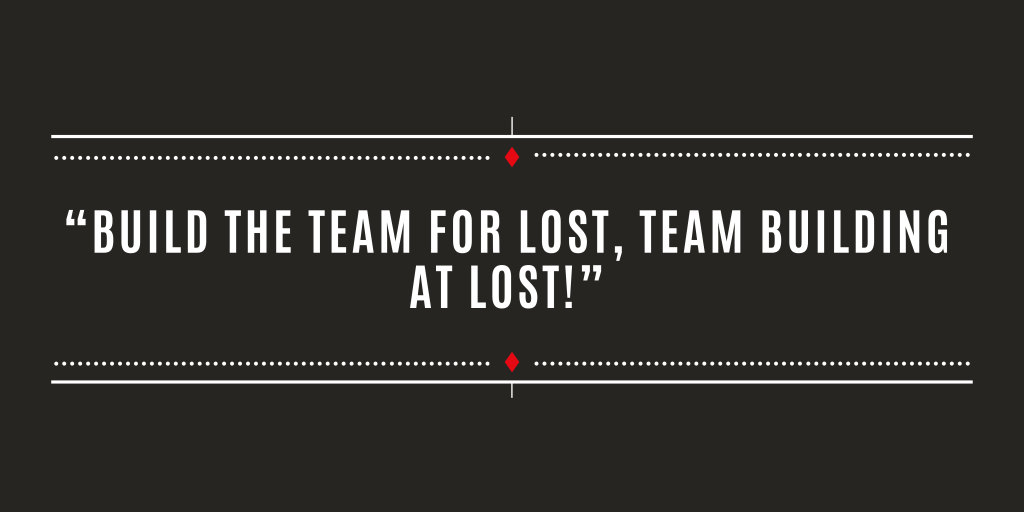
Team building activities are a powerful way to enhance collaboration, boost morale, and improve communication within your organization. When employees work well together, productivity soars, and your business thrives. Here are the top five team-building activities, including an escape game, that can help you build a stronger, more cohesive team.
Escape games have become a popular choice for team building activities. They offer an exciting and immersive experience that challenges teams to work together under pressure. In an escape game, participants are “locked” in a room and must decipher clues, solve puzzles, and unlock the exit within a set time limit. The experience fosters problem-solving skills, teamwork, and effective communication, as team members must collaborate to escape successfully. Escape games come in various themes, from historical mysteries to futuristic scenarios, providing a thrilling way to bond with colleagues while developing essential skills.
Outdoor activities, such as ropes courses, scavenger hunts, or survival challenges, take teams out of their comfort zones and into nature. These activities encourage problem-solving, trust-building, and physical teamwork. Conquering obstacles and working together in an unfamiliar environment helps team members form lasting bonds and gain new perspectives on their colleagues.
Cooking classes provide a fun and delicious way to encourage collaboration. Participants work together to prepare a meal under the guidance of a professional chef. This activity requires communication, planning, and delegation, as team members must coordinate to create a culinary masterpiece. Sharing a meal they’ve prepared together afterward adds an element of satisfaction and camaraderie.
Problem-solving workshops focus on enhancing analytical thinking and teamwork. These sessions typically involve solving complex puzzles, riddles, and brain-teasers. By tackling intricate challenges together, teams develop problem-solving strategies and learn how to leverage each member’s unique strengths.
Charity-based team building activities allow your team to give back to the community while bonding. Examples include volunteering at a local charity, organizing a charity run, or assembling care packages for those in need. These activities instill a sense of purpose and unity within the team, fostering a culture of empathy and social responsibility.
Whether you choose to embark on an escape game adventure, explore the outdoors, whip up a gourmet meal, solve complex problems, or engage in charity work, team building activities are investments in your organization’s success. They promote trust, improve communication, and boost morale among your employees. The results? A more motivated, cohesive, and effective team that propels your business toward its goals.
Remember to select team-building activities that align with your team’s preferences, strengths, and needs. The ultimate goal is to create an environment where your team can thrive and collaborate more effectively, leading to improved performance and success.
Incorporate these activities into your team-building strategy, and watch your workforce become a well-oiled machine of collaboration and innovation.
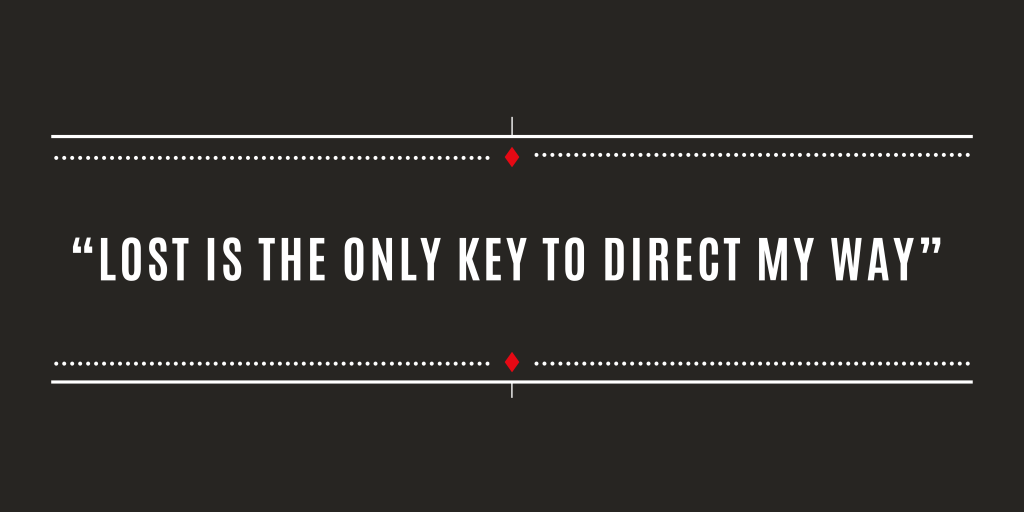
Effective team building is not just a nice-to-have but a must-have for any organization looking to thrive in today’s competitive business landscape. Building a strong, cohesive team is essential for achieving goals, boosting productivity, and fostering a positive work environment. To help you build and maintain an effective team, here are some must-do activities and strategies.
1. Define Clear Objectives:
Every successful team begins with clear objectives. Set specific, measurable, achievable, relevant, and time-bound (SMART) goals that your team can work toward. A shared vision helps everyone understand the purpose of their efforts.
2. Open and Honest Communication:
Open and honest communication is the lifeblood of effective team building. Encourage team members to express their thoughts, ideas, and concerns openly. Regular team meetings, one-on-one check-ins, and feedback sessions are essential for maintaining healthy communication.
3. Recognize and Celebrate Achievements:
Acknowledging and celebrating the achievements and contributions of team members is a must. Recognizing hard work and accomplishments boosts morale and motivation, and it fosters a positive team culture.
4. Foster Inclusivity:
Promote a diverse and inclusive team environment. Recognize that different backgrounds and perspectives can lead to more innovative solutions. Ensure that all team members feel valued and included.
5. Set Realistic Expectations:
Ensure that the workload and deadlines are realistic and achievable. Overburdening team members can lead to stress and burnout, which can negatively impact performance and morale.
6. Encourage Collaboration:
Create opportunities for team members to collaborate and share their expertise. Cross-functional teamwork encourages the exchange of ideas, which can lead to creative solutions and problem-solving.
7. Provide Growth Opportunities:
Offer training and development opportunities to help team members grow in their roles. Learning and personal development not only benefit the individuals but also contribute to the overall strength of the team.
8. Lead by Example:
Leaders play a critical role in team building. Lead by example, demonstrating the behavior and work ethic you expect from your team. Your actions and attitudes influence the team’s culture and dynamics.
9. Adapt and Evolve:
Be open to change and adapt your strategies as needed. The business landscape is constantly evolving, and your team should be adaptable to remain competitive. Flexibility is a must in a dynamic environment.
10. Promote Team Building Activities:
Incorporate team-building activities into your routine. These can be as simple as team lunches or as immersive as escape games. Team-building activities strengthen bonds, improve communication, and encourage collaboration among team members.
11. Develop Trust:
Trust is the foundation of effective teamwork. Encourage an environment where team members trust one another and trust in the team’s collective abilities. Trust allows for open communication and risk-taking.
12. Clarify Roles and Responsibilities:
Ensure that team members understand their roles and responsibilities within the team. Clearly defined roles help prevent conflicts and confusion and ensure everyone knows their contribution to the team’s success.
13. Celebrate Diversity:
Appreciate the diversity of your team. Embrace different perspectives, backgrounds, and experiences. Diversity can lead to more creative problem-solving and innovation.
14. Focus on Continuous Improvement:
Effective team building is an ongoing process. Regularly assess your team’s performance and seek areas for improvement. Encourage feedback and make continuous adjustments to enhance team dynamics.
Conclusion:
Effective team building is not a one-time effort but an ongoing commitment to creating a positive and collaborative work environment. By implementing these must-do activities and strategies, you can foster a strong, motivated, and high-performing team that is ready to achieve success together.
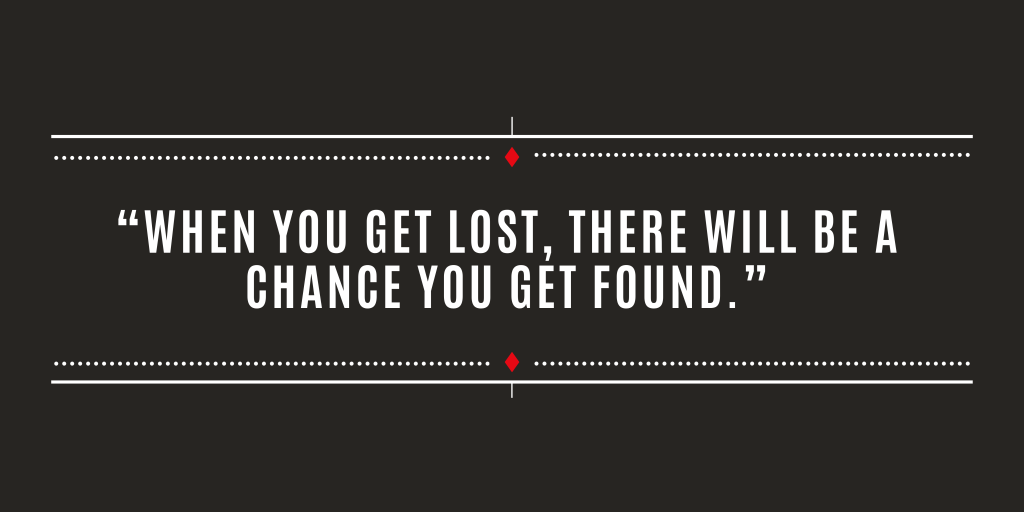
Hong Kong, known for its vibrant business landscape and multicultural environment, is a city where the spirit of collaboration and innovation thrives. Team building in Hong Kong is not just a trend but a vital strategy to create strong, cohesive teams capable of tackling the challenges of a dynamic business world. Among the many team-building experiences available in this bustling city, LOST stands out as a unique and engaging choice for fostering teamwork and problem-solving skills.
In a fast-paced and competitive environment like Hong Kong, effective teamwork is not just an option—it’s a necessity. Successful organizations understand that building strong teams is the key to achieving their goals and maintaining a competitive edge. Here’s why team building is crucial in Hong Kong:
Enhanced Collaboration: Team building activities bring team members together, breaking down barriers and fostering collaboration. In a city as diverse as Hong Kong, this is essential for working effectively with colleagues from various backgrounds.
Improved Communication: Effective communication is the cornerstone of any successful organization. Team-building activities encourage open and transparent communication, helping employees better understand each other’s strengths and weaknesses, and how to work together harmoniously.
Sharper Problem-Solving Skills: Hong Kong’s business world demands top-notch problem-solving skills. Team building activities often involve complex puzzles and scenarios, honing this essential skill and teaching team members how to tackle challenges effectively.
Boosted Morale: The high-pressure environment in Hong Kong can take a toll on employee morale. Team building activities provide a much-needed break and the opportunity to celebrate successes, creating a more positive and motivated workforce.
Fostering Innovation: Collaborative teams are more likely to generate innovative solutions. Team building activities encourage out-of-the-box thinking and new perspectives—crucial qualities in a city known for its innovative spirit.
One of the most innovative and engaging team-building experiences in Hong Kong is offered by LOST. LOST specializes in creating reality escape games that challenge participants to work together under pressure. In an escape game, participants find themselves “locked” in a room and must decipher clues, solve puzzles, and unlock the exit within a set time limit. This immersive experience fosters problem-solving skills, teamwork, and effective communication, as team members must collaborate to escape successfully.
LOST offers a variety of themed escape games, from historical mysteries to futuristic scenarios, providing an exciting way to bond with colleagues while developing essential skills. Whether you’re exploring the secrets of ancient civilizations or navigating a high-tech heist, LOST’s escape games offer an unforgettable adventure that strengthens your team’s capabilities.
Team building in Hong Kong is not just a trend; it’s a fundamental strategy for success in this dynamic business environment. By participating in team-building activities like LOST’s escape games, your organization can cultivate a more collaborative, creative, and high-performing team, ready to take on the challenges of Hong Kong’s competitive landscape.
Don’t miss the opportunity to harness the power of team building in Hong Kong with LOST. Whether you’re a local enterprise or an international corporation, LOST’s immersive escape games are an exciting and effective way to enhance teamwork and problem-solving skills while enjoying the rich culture of this incredible city.
So, embark on your journey of team building in Hong Kong with LOST, and experience the transformation of your team into a dynamic, innovative, and unstoppable force ready to conquer any challenge that comes their way.
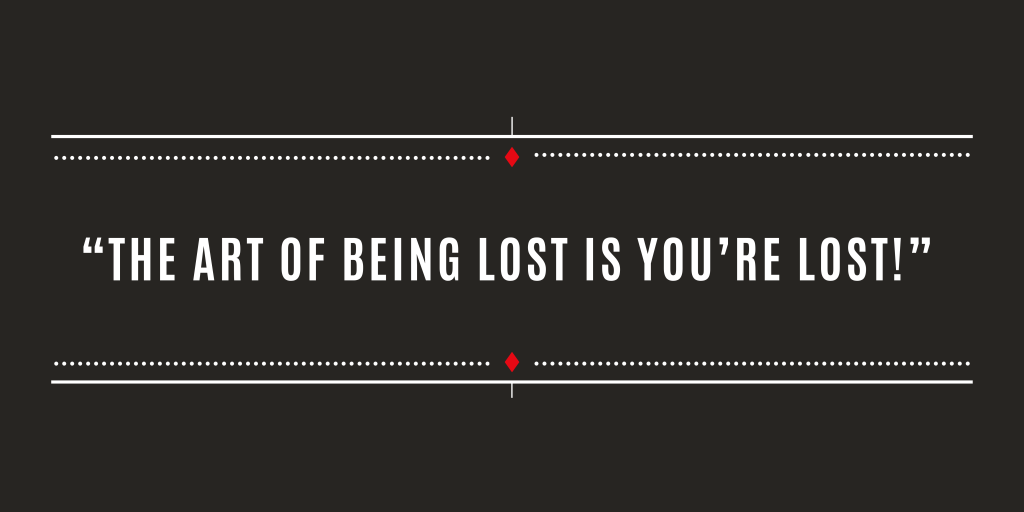
在現代商業環境中,團隊建設已經成為成功企業的不可或缺的一部分。透過加強團隊合作和溝通,公司能夠激勵員工,提高效率,並實現更大的成就。然而,關鍵在於如何實現優質的團隊建設。LOST 密室逃脫遊戲為企業提供了一個獨特且極具吸引力的方式,將員工推向成功的團隊建設之路。
1. 促進團隊合作
LOST 密室逃脫遊戲營造了一個充滿挑戰和謎題的環境,要求團隊成員密切合作,以尋找線索並解決謎題。這種協同作業促進了團隊成員之間的有效溝通和合作,並幫助他們更好地了解彼此的工作風格和能力。通過這個遊戲,員工學會共同努力實珸工作目標,同時也建立了更強大的團隊凝聚力。
2. 培養問題解決能力
LOST 密室逃脫遊戲以其複雜的謎題和難解的挑戰而聞名。團隊成員必須運用關鍵思考和問題解決能力來解開謎題,並成功逃脫。這種挑戰有助於個人認知能力的提高,同時也增強了團隊的集體問題解決能力。這種能力的提升有助於在工作場所應對挑戰和障礙時更高效和創新。
3. 建立信任和情感連結
參與LOST 密室逃脫遊戲的團隊成員面臨著時間壓力和複雜的謎題,這迫使他們互相信任並依賴彼此的力量。成功逃脫後,團隊成員共同取得的成就感和情感聯繫在遊戲結束後仍然持續存在。這種信任和情感聯繫可以極大地增強工作場所內團隊的動態,帶來更和諧和協作的工作環境。
4. 促進領導能力和角色定義
在LOST 密室逃脫遊戲中,團隊成員會自然而然地扮演不同的角色。有些人可能會擔任領導職位,而其他人則通過他們的解決問題能力或細心的態度做出貢獻。這種動態讓員工認識和欣賞彼此的優勢,從而更好地定義團隊內的角色和責任。LOST 密室逃脫遊戲有助於組織識別潛在的領導者,並促進對每個團隊成員獨特貢獻的更明確理解。
總括一下,LOST 密室逃脫遊戲以促進有效溝通、培養問題解決能力、建立信任和情感聯繫,以及促進領導能力和角色定義等優勢而脫穎而出,成為優質的團隊建設活動。隨著組織繼續重視團隊合作,LOST 密室逃脫遊戲提供了一個有趣而具挑戰性的途徑,幫助企業實現更大的成功。如果你正在尋找提升你團隊的效能和凝聚力的方法,那麼LOST 密室逃脫遊戲絕對值得一試。
01
6 Sharp Street East, Causeway Bay
銅鑼灣 霎東街6號
☏: +852 2892 2393
🕙 Opening Hours 營業時間
Mon–Fri: 12:00 – 22:00
Sat–Sun & P.H.: 11:00 – 22:00
02
3/F, 67-71 Argyle Street, Mong Kok
(Mong Kok MTR Exit D2)
旺角 亞皆老街67-71號 3樓
(旺角地鐵站D2出口新之城對面)
☏: +852 2390 0093
🕙 Opening Hours 營業時間
Mon–Fri: 12:00 – 22:00
Sat–Sun & P.H.: 11:00 – 22:00
03
Shop 304, D2 Place Two,
15 Cheung Shun Street, Lai Chi Kok
荔枝角 長順街15號 D2 Place 二期 304舖
☏: +852 2890 2093
🕙 Opening Hours 營業時間
Mon–Thur: 13:00 – 19:00
Fri: 13:00-20:00
Sat–Sun & P.H.: 11:00 – 20:00
04
Shop B102, The Pulse,
28 Beach Rd, Repulse Bay
香港 淺水灣 海灘道28號
The Pulse B102舖
☏: +852 6037 5945
🕙 Opening Hours 營業時間
Mon–Sun: 11:00 – 19:00
05
Shop G11A-1, DB Plaza,
1 Discovery Bay Rd, Lantau Island
大嶼山 愉景灣道1號
愉景廣場 G11A-1舖
☏: +852 9303 5125
🕙 Opening Hours 營業時間
Fri–Sun & P.H.: 11:00 – 19:00
Special Occasion: 11:00 – 19:00
06
Play Park Shop UB06, New Town Plaza Phase One, 18 Sha Tin Centre St, Sha tin
沙田 沙田正街18號 新城市廣場一期
Play Park UB06舖
☏: +852 2890 3029

Mon–Fri: 12:00 – 20:00
Sat–Sun & P.H.: 11:00 – 21:00
07
Shop B24-B25, B1/F, Treasure World (Site 11),
The Whampoa
黃埔天地聚寶坊(第十一期)
地庫一層B24-B25號舖
☏: +852 2890 3003
🕙 Opening Hours 營業時間
Mon–Fri: 12:00 – 21:00
Sat–Sun & P.H.: 11:00 – 21:00